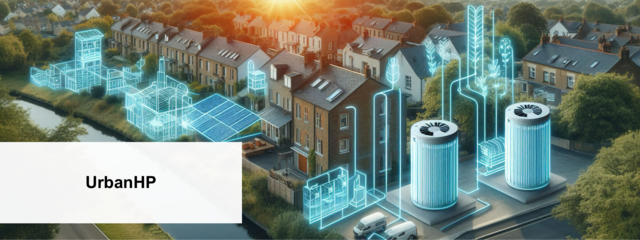
Heat Pumps as a Key Technology for Sustainable Heat Supply: Opportunities and Challenges for Existing Neighborhoods.
Heat pumps are considered a key technology for decarbonizing and increasing the efficiency of Austria's heat supply. They harness ambient heat and can be ideally combined with renewable energy sources such as photovoltaics, wind, and geothermal energy. Additionally, they are the only system that offers the possibility of cooling, which is becoming increasingly important in light of climate change. In the area of neighborhood solutions, heat pumps open up new efficiency potentials by networking buildings and their functions for heating and cooling. However, integrating them into existing neighborhoods presents significant challenges due to various structural, technical, and spatial factors. With the increasing use of heat pumps and other technologies, volatility in the energy system rises, necessitating new solutions for operation and planning. Thermal storage systems and intelligent control systems offer promising solutions to meet demand flexibly and in a way that supports the system. The project's goal is to investigate the system-friendly integration of heat pumps into existing neighborhoods, considering variable electricity prices. This will involve energy technology models, economic and ecological assessments, as well as a semi-virtual implementation in the case study "Innovation District Inffeld." Preliminary studies show that using heat pumps can reduce greenhouse gas emissions by up to 70%.



